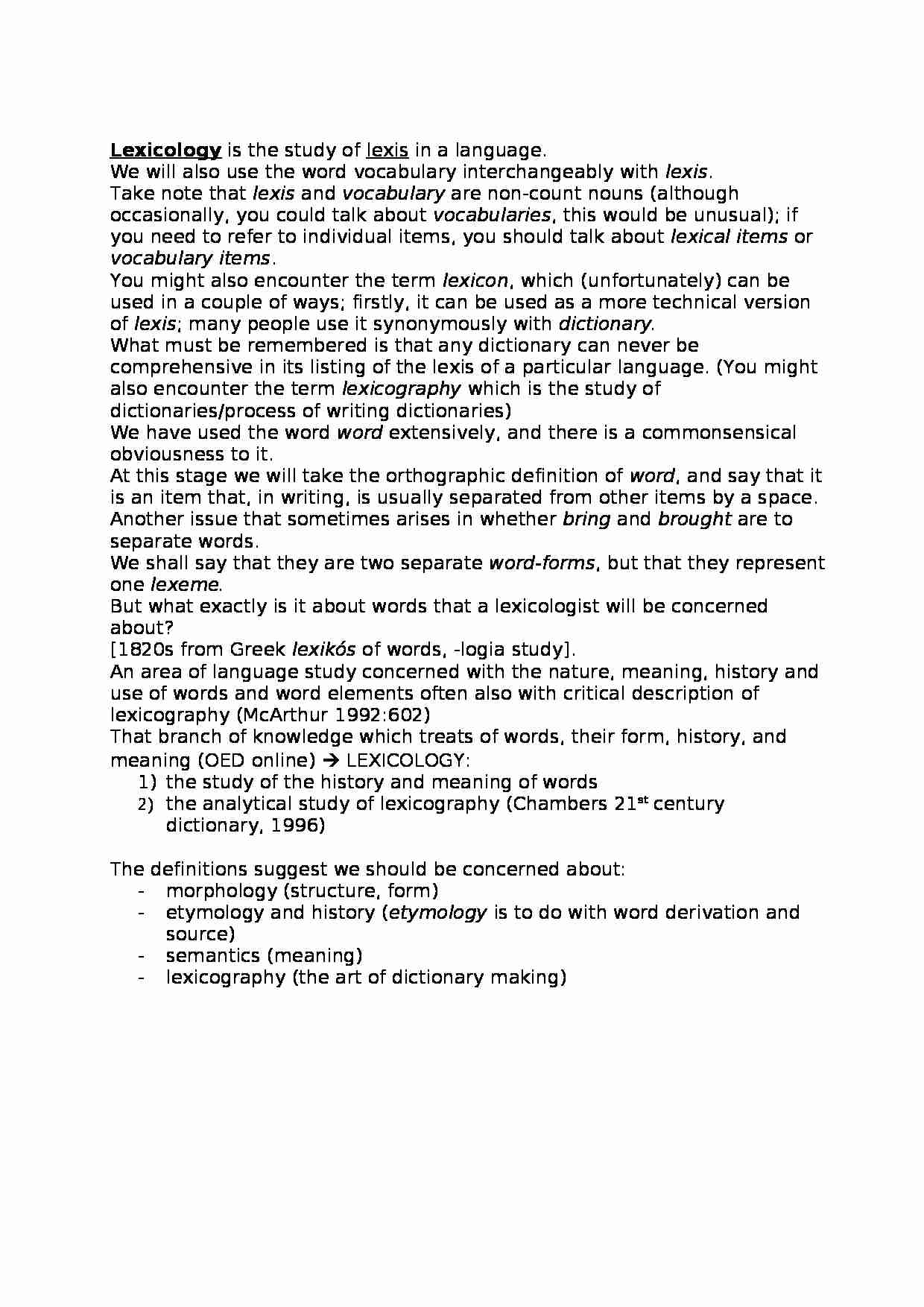
Lexicology is the study of lexis in a language.
We will also use the word vocabulary interchangeably with lexis.
Take note that lexis and vocabulary are non-count nouns (although occasionally, you could talk about vocabularies, this would be unusual); if you need to refer to individual items, you should talk about lexical items or vocabulary items.
You might also encounter the term lexicon, which (unfortunately) can be used in a couple of ways; firstly, it can be used as a more technical version of lexis; many people use it synonymously with dictionary.
What must be remembered is that any dictionary can never be comprehensive in its listing of the lexis of a particular language. (You might also encounter the term lexicography which is the study of dictionaries/process of writing dictionaries)
We have used the word word extensively, and there is a commonsensical obviousness to it.
At this stage we will take the orthographic definition of word, and say that it is an item that, in writing, is usually separated from other items by a space.
Another issue that sometimes arises in whether bring and brought are to separate words.
We shall say that they are two separate word-forms, but that they represent one lexeme.
But what exactly is it about words that a lexicologist will be concerned about?
[1820s from Greek lexikós of words, -logia study].
An area of language study concerned with the nature, meaning, history and use of words and word elements often also with critical description of lexicography (McArthur 1992:602)
That branch of knowledge which treats of words, their form, history, and meaning (OED online) LEXICOLOGY:
the study of the history and meaning of words
the analytical study of lexicography (Chambers 21st century dictionary, 1996)
The definitions suggest we should be concerned about:
morphology (structure, form)
etymology and history (etymology is to do with word derivation and source)
semantics (meaning)
lexicography (the art of dictionary making)
... zobacz całą notatkę



Komentarze użytkowników (0)